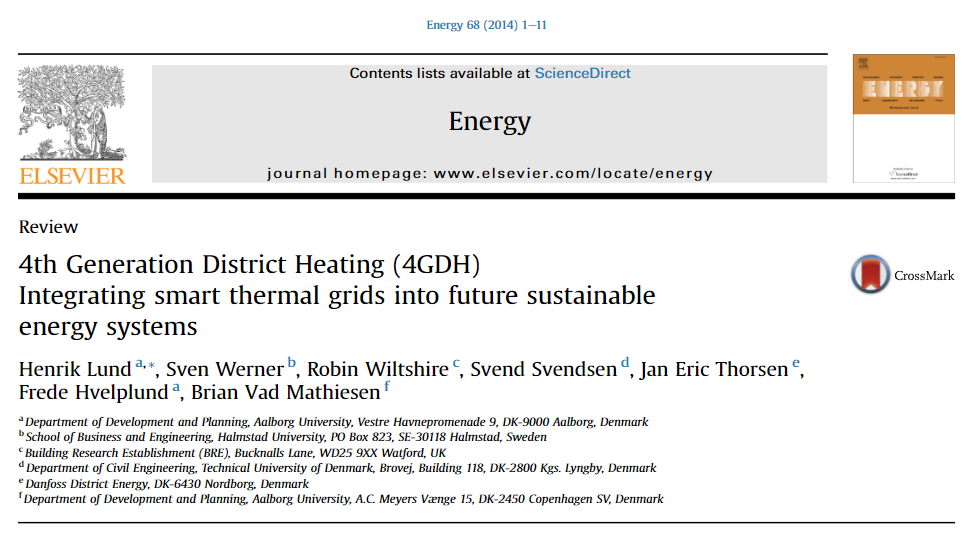Low temperature district heat (4GDH)
What is district heating and the different types?
Projects
COOL DH
COOL DH is an abbreviation of Cool ways of using low grade Heat Sources from Cooling and Surplus Heat for heating of Energy Efficient Buildings with new Low Temperature District Heating (LTDH) Solutions. The COOL DH project innovates, demonstrates, evaluates, and disseminates technological solutions needed to exploit and utilise sources of very low-grade surplus heat for heating of energy efficient buildings via Low Temperature District Heating (LTDH). The project shows how the transition of District Heating (DH) systems towards LTDH can make these more resource efficient and more energy efficient.
TEMPO project
Tempo project deliverables. The TEMPO – Temperature Optimisation for Low-Temperature District Heating across Europe – project developed technical innovations that enable district heating networks to operate at lower temperatures.
IEA-DHC Annes TS2
Implementation of Low Temperature District Heating Systems. Annex TS2 is a project aiming at facilitating the implementation of 4th generation Dis- trict Heating (4GDH). It is a continuation of the first task shared annex on 4GDH which aimed at collecting what is known about 4GDH in one report (Annex TS1).
Publications
REWARDHeat Deliverable 7.4
- REWARDheat D7.4
RESUSEHeat handbook
The aim of this book is to consolidate information from low temperature waste heat recovery demonstration sites. Apart from technical validation, the ReUseHeat project has generated knowledge about the urban waste heat potential in Europe, main stakeholders and different business aspects.
DHC+ Knowledge Hub
- DHC+ Knowledge Hub (also for all other DHC related topics)
